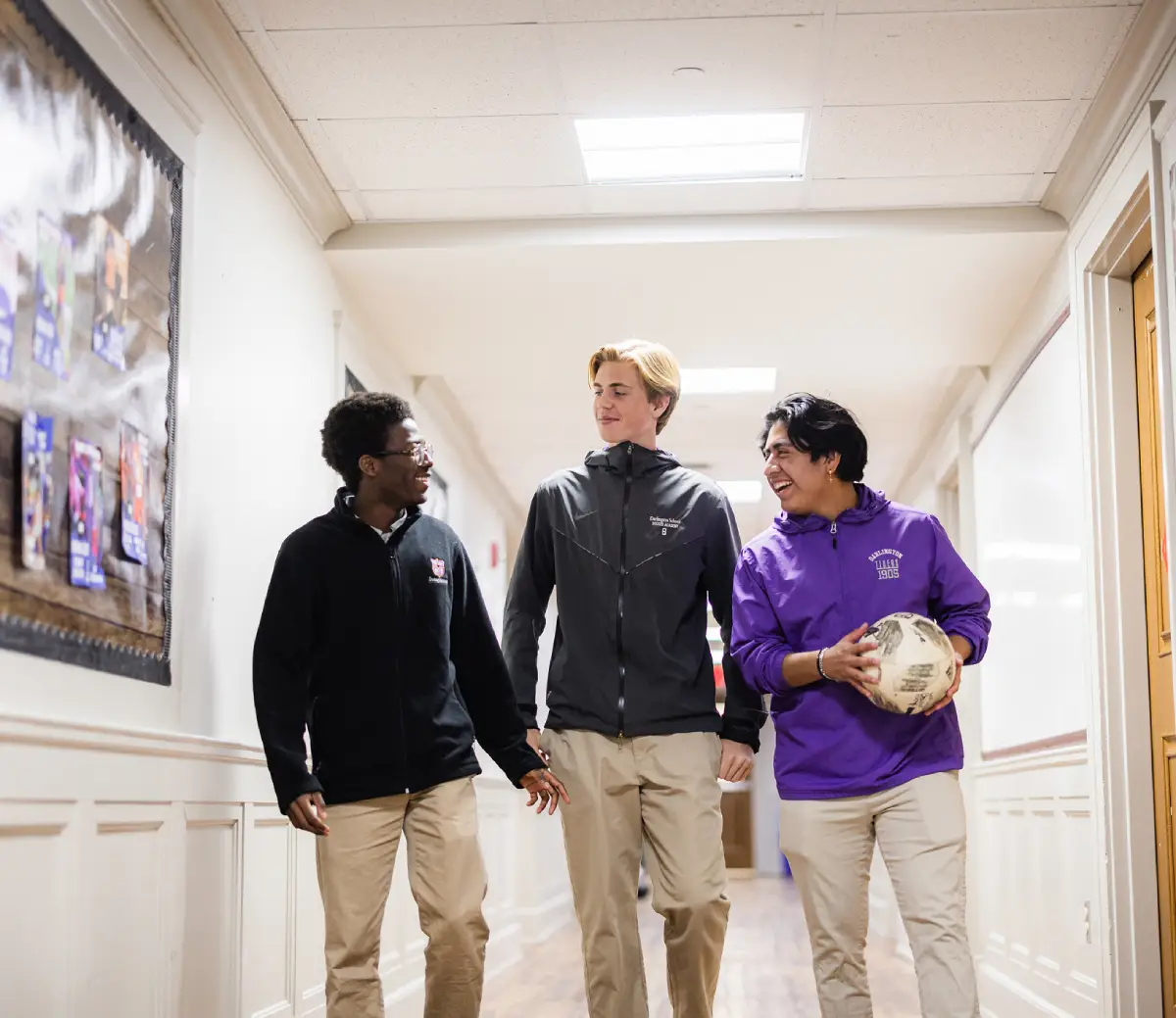For Students
Interested in learning more about attending a boarding school? You’re in the right place!
Find out more about what it’s like to live where you learn, get answers to your most pressing questions and find out why boarding school is so much more than just great academics.
7 Reasons Why Boarding School Might Be Right for You
You’re Looking to Grow Your Independence
At boarding school, you’ll become much more independent, while also building discipline, self-motivation and maturity—all of which will prepare you for college (and beyond)! Plus you’re not in it alone. At boarding school, you’ll have a robust support system of advisors, dorm parents and faculty who are always available to provide you with guidance, encouragement and pep talks!
You Want to Meet Friends From Around the World
Boarding schools attract students from all over the globe. That means you’ll have access to new perspectives, unique ideas and life changing friendships with people you wouldn’t have ever gotten to meet at a day school.
You’re Ready to Discover and Follow Your Passions
Boarding schools offer incredible resources, similar to what you’d expect at a top-level college or university. (Think state-of-the-art science facilities, expert teachers and a huge range of extracurriculars and elective courses!) So whatever you’re into – or even if you’re just not sure yet! — boarding school will give you the tools you need to explore and grow.
You’re Looking for an Academic Challenge
Are you looking for an academic challenge beyond what you can get at your local public school? Boarding school is the right place for you, with most schools offering a whole catalog of advance, college-level courses, unique electives, hands-on research opportunities, and so much more.
You Want to Form Closer Connections With Your Teachers and Mentors
Did you know that boarding students are 50% more likely than non-boarding students to learn one-on-one from their teachers? Just like at a day school, your boarding school teachers are dedicated to your learning within the classroom. But, unlike a day school, your boarding school teachers live alongside you on campus, so they’re also around during meals, weekends and evening study sessions. This means that they’ll really get to know you as a person!
You’re Ready to Join the Ranks of World-Renowned Politicians, Authors, Doctors, Lawyers and Other Boarding School Graduates
Many of the world’s most influential leaders, thinkers and innovators began their journeys at boarding schools—and you might be next! Boarding schools have a long tradition of shaping driven, successful individuals who go onto change the world. (Plus, you’ll have access to your school’s robust alumni network who will be happy to offer guidance, answer questions and provide connections!)
You Want to Build Friendships and Memories That Will Last a Lifetime
By living where you learn, you’ll form deep friendships with your classmates, take part in beloved school traditions and graduate with incredible memories. It’s an experience unlike any other–one that will change your life.






FAQ’s for STUDENTS
Get Answers to Your Biggest Questions about Enrolling in Boarding School
There are many differences—but maybe the biggest is the fact that boarding school offers more opportunities to grow than you ever thought possible.
At boarding school, your education doesn’t start and end when the bell rings. You’ll spend your mornings taking courses in fields that you never even knew existed and learning from teachers who are experts in their field, and you’ll spend your afternoons pursuing your passions and discovering new ones through extracurricular activities with top-of-the-line facilities and resources. On weekends, you’ll join your classmates from around the world for movie nights, dances, sporting events, plays, trips to museums, and just hanging out together. Not to mention the opportunities to conduct actual, real-world research, to go on study abroad trips, to create your own volunteer initiatives–the opportunities are truly endless.
Everything is there for you right on campus—from your classes to your teachers to some unforgettable desserts in the dining hall. At boarding school you’ll never be just a number—everyone will know you, and they’re dedicated to helping you grow and learn.
For most boarding school students, this is their first time living away from home, so it’s a priority at the school to help you break the ice with your fellow new students and get comfortable with your surroundings. Plus, by living on campus, you’ll be around a community of peers and adults who are always there for you, every step of the way!
Absolutely! Staying close to home is totally possible (and encouraged!) through FaceTimes, phone chats and weekend visits. In fact, a lot of students say they feel MORE connected to home than they did before boarding school.
Spoiler alert: boarding schools are nothing like you’ve seen on screen (and that’s a good thing!). Boarding schools really feel like one big family, and they’re way more comfortable and down-to-earth than what you’ve seen on screen. At boarding school, you’ll have the opportunity to take on leadership roles, try new things, live with your friends and find out what you’re passionate about—no Sorting Hats or snobby teenage cliques included.
You’ll have lots of great options to choose from on the weekends. From dances and mixers, to movies, games and other activities, boarding schools make sure that weekends are action-packed on campus. You can also go home or visit the homes of your friends who live nearby. (And of course, you’ll also have time to relax, catch up on homework, take a nap, watch TV and just hang out with friends!)
find the perfect boarding school








